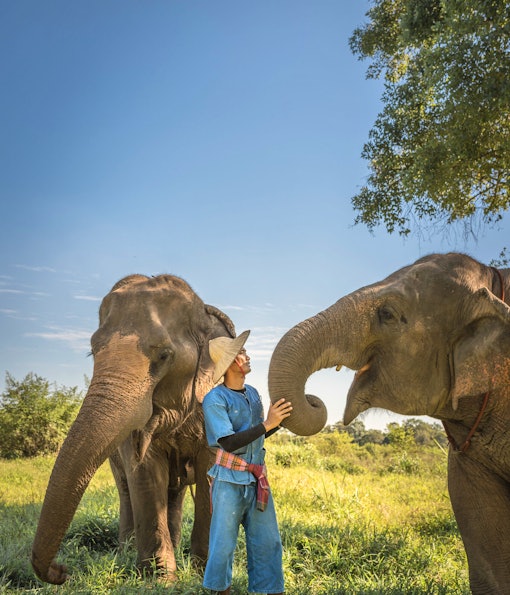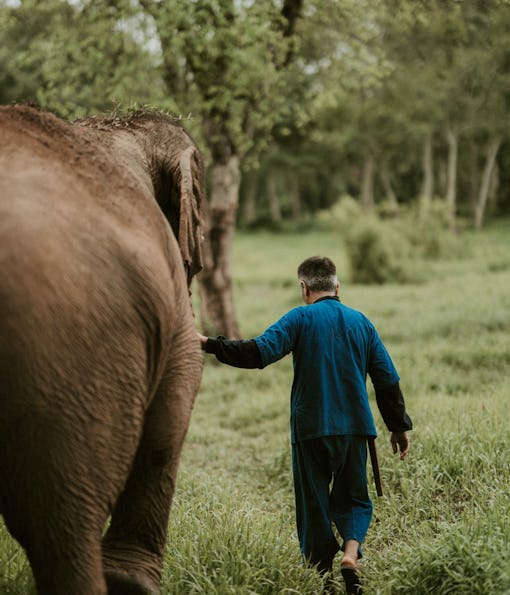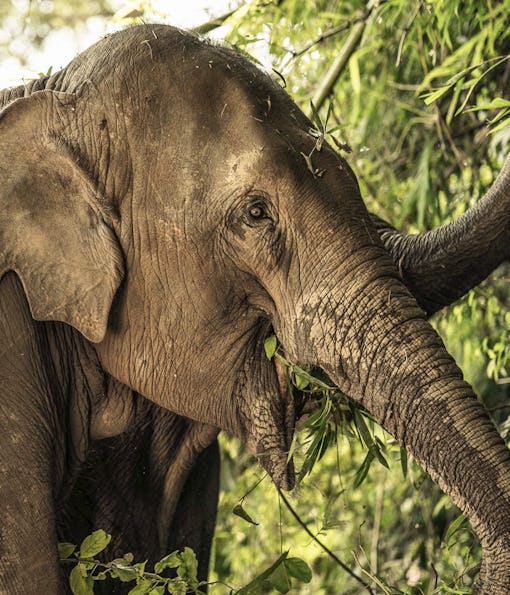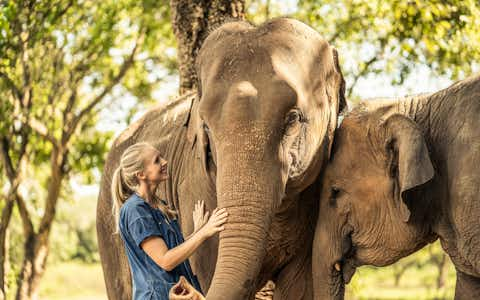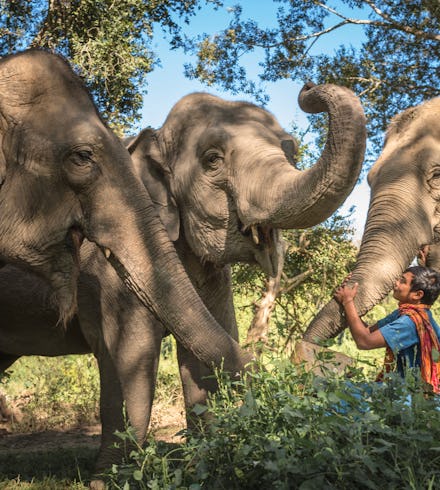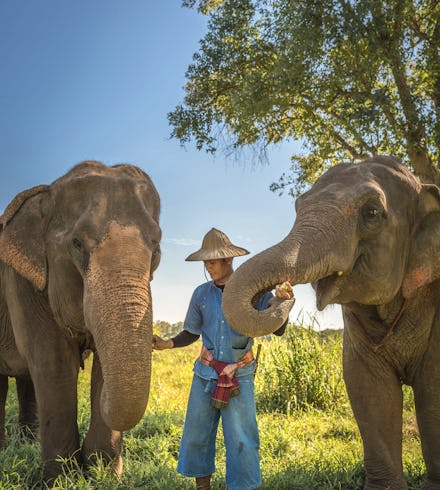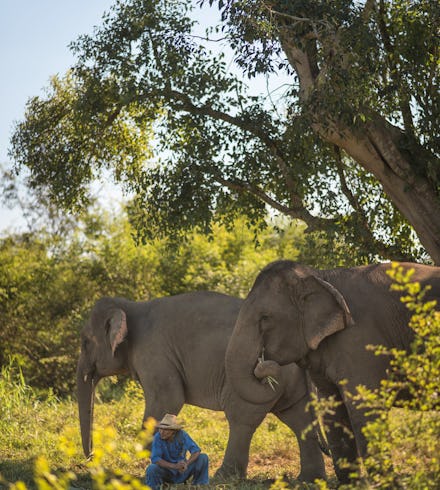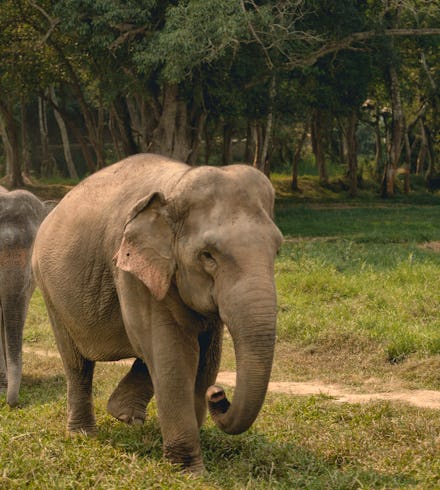CAPTIVE ELEPHANTS IN THAILAND
Historically, Thailand’s captive elephants and their mahouts worked in the logging industry, hauling trees from dense jungles. However, the 1989 logging ban left them unemployed.
Maintaining these elephants, which consume over 10% of their body weight daily (over 200 kg for adults), proved costly. Many elephant owners turned to illegal street begging in major cities to survive, despite its illegality. Others worked in illicit logging camps, facing overwork, malnutrition, and accidents, including landmines. Others resorted to working in trekking camps, though care quality for the elephants varied widely with many of them overworked and living in non-forest areas.
Collaborative efforts are crucial to ensure the welfare of these captive elephants, as mass tourism remains their main income source.

